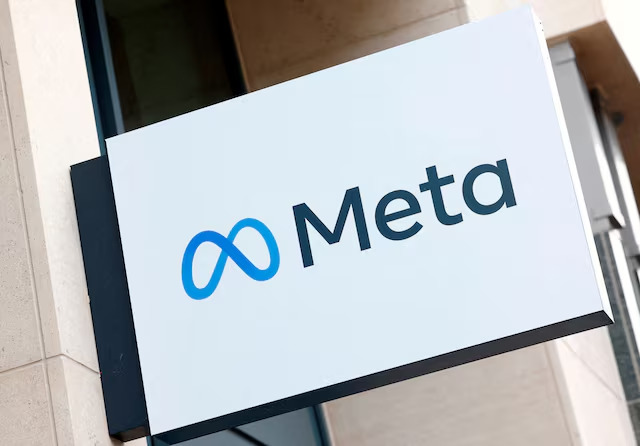Twitter (now X), this change signals Meta’s attempt to regain relevance in a market that has been rapidly exploring alternatives like Bluesky.
Here's ads banner inside a post

Threads, which has gained substantial traction since its launch, is now shifting its approach to ensure that users see more posts from accounts they actually follow, rather than bombarding them with a blend of algorithmic recommendations from accounts they’ve never interacted with.

Here's ads banner inside a post
This move was announced by Adam Mosseri, the Head of Instagram, in a Threads post on November 21, 2024. In his announcement, Mosseri revealed that Threads would be prioritizing content from accounts users follow, meaning less emphasis would be placed on algorithmically-driven recommendations. He wrote, “We are rebalancing ranking to prioritize content from people you follow, which will mean less recommended content from accounts you don’t follow and more posts from the accounts you do starting today.”

While this may seem like a simple change, it is actually a significant departure from Meta’s past behavior. The company has spent years refining algorithmic feeds on Instagram and Facebook, doubling down on this approach in 2022 despite widespread user dissatisfaction. This shift, which de-emphasized chronological feeds in favor of algorithmically determined content, was met with vocal criticism, as users felt overwhelmed by suggestions that didn’t align with their interests. Now, with the algorithmic feed shift, it seems Meta is reversing course, acknowledging the public desire for more control and less algorithmic interference.
Here's ads banner inside a post
The Competitive Context: What Does This Mean for Threads?
The decision to tweak Threads’ feed algorithm is no accident. With a significant rise in popularity for platforms like Bluesky, Meta seems to be positioning Threads as a direct competitor to other microblogging sites. The comparison between Threads and Bluesky, in particular, is hard to ignore. Bluesky, a decentralized social network created by former Twitter CEO Jack Dorsey, has already incorporated a feed algorithm that defaults to showing users content exclusively from accounts they follow.
Bluesky’s approach has resonated with many users, including Mosseri himself, who was quick to acknowledge the similarities between Threads’ new direction and Bluesky’s. In fact, Bluesky’s CEO, Jay Graber, reacted to the change with a tweet that was both a subtle endorsement of the move and a celebration of healthy competition. “Great to see other social networks copy custom feeds!” Graber tweeted, highlighting how competition and innovation had stagnated under the influence of tech giants for the past decade.
The feedback from users on Twitter and Bluesky reflected a similar sentiment. Many users praised the change and jokingly pointed out that Threads’ updated approach seemed to embrace a logical, user-friendly move — simply showing the content posted by people users actually want to hear from.

A Big Shift in Meta’s Strategy: Why Now?
Threads’ decision to back off from algorithmic content recommendations is telling. Meta has been notoriously committed to refining and expanding its algorithm-driven feeds, especially for Instagram and Facebook. However, users’ discontent with these algorithmic systems has been long documented. The increasing prevalence of irrelevant suggestions on Instagram, Facebook, and even Twitter led to user frustration, and many argued that these platforms were prioritizing engagement over user satisfaction.

Back in 2022, when Meta announced that both Instagram and Facebook would increase the amount of algorithmically chosen content, CEO Mark Zuckerberg made it clear that Meta believed these feeds were essential to promoting creator content. Despite the growing backlash, Meta pushed forward, believing that improved recommendations would allow creators to reach a broader audience.

Mosseri himself stated at the time, “If you’re seeing things in your Feed that are recommendations that you’re not interested in, that means that we’re doing a bad job ranking, and we need to improve. But we’re going to continue to try and get better at recommendations because we think it’s one of the most effective and important ways to help creators reach more people.”
While the intention was to enhance user engagement and creator visibility, the result was often a frustrating experience for users who felt bombarded by irrelevant content. Now, with Threads’ new approach, Meta seems to have taken user complaints to heart, opting to let users see more of what they actually signed up for: content from people they’ve intentionally chosen to follow.
The Impact on Creators and Users
While this change prioritizes content from people users actually follow, it will undoubtedly have different effects on creators and users alike. For creators, Mosseri noted that they should expect a decrease in “unconnected reach” and an increase in “connected reach.” This means that creators will likely see a more engaged audience, but the reach beyond their followers may shrink. While this could be seen as a limitation, it may actually improve the quality of engagement, as followers will be more likely to see content they genuinely enjoy.

For regular users, this change represents a more tailored, personalized experience, one that feels more in line with their expectations. Instead of scrolling through a feed filled with random content from accounts they don’t follow, users will be able to focus on the voices and creators that matter most to them. As social media users increasingly seek platforms where they can find meaningful and relevant content, Threads’ decision could be seen as a major step toward a more user-centric experience.
A Fresh Start or a Work in Progress?
Despite the optimism surrounding this change, Mosseri was quick to acknowledge that this rebalancing of the feed’s ranking system is still a work in progress. “This [ranking rebalancing] is definitely a work in progress — balancing the ability to reach followers and overall engagement is tricky — thanks for your patience and keep the feedback coming,” he wrote in a post.
It’s clear that Meta is not making this change on a whim, and there are likely to be ongoing tweaks and adjustments as user feedback rolls in. Threads has a long road ahead of it as it seeks to carve out a niche in a competitive market filled with established platforms like Twitter and the growing presence of Bluesky.
:max_bytes(150000):strip_icc()/shutterstock_2113535186-750x406-5a8cb0db05f441deb12ea8d8c726a2c5.jpg)
However, the fact that Meta is listening to user feedback and making these changes so quickly is a positive sign. It shows that the company is willing to adapt and evolve, something that has often been lacking in social media platforms over the past few years.
The Bottom Line: What’s Next for Threads?
Threads’ recent algorithmic shift represents a fundamental change in the way we consume content on social media. As the platform continues to evolve, users and creators alike will be watching closely to see whether this change leads to better engagement and a more personalized experience. For now, it seems that Meta is responding to the changing tides of social media, putting user experience front and center.

As competition heats up with alternatives like Bluesky, Meta’s ability to innovate and adapt will determine whether Threads can hold its own in the microblogging space. For now, though, it seems that the platform is making a concerted effort to give users what they’ve been asking for: a feed filled with the voices and content they actually care about.

Time will tell if this change is the beginning of a broader shift in social media trends, or simply a temporary solution to ongoing user dissatisfaction. Regardless, Threads has shown it’s ready to listen — and that could be the key to its future success.


